13 start with F start with F

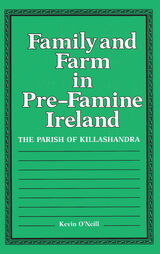
Now available in paperback, Kevin O’Neill’s highly praised study of rural Ireland in the years leading up to the "Great Hunger" of the 1840s explicates the social, economic, and demographic conditions of the era. He argues that overpopulation and deprivation were inextricably linked to a third variable—the rapid economic development of rural Ireland that was shaped by British interests.
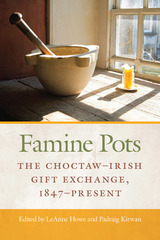

Kelleher begins with a critical reading of the novels and short stories written about the Irish famine over the last 150 years, from the novels of William Carleton and Anthony Trollope to the writings of Liam O’Flaherty and John Banville. She then moves on to unveil a lesser-known body of literature—works written by women. This literature is read in the context of a rich variety of other sources, including eye-witness accounts, memoirs, journalistic accounts, and famine historiography. Concluding with a reading of the twentieth-century accounts of the famine in Bengal, this book reveals how gendered representations have played a crucial role in defining notions of famine.
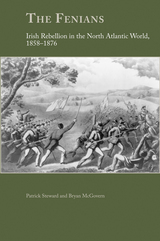
Inspired by the failed Young Ireland insurrection of 1848 and other nationalist movements on the European continent, the Fenian Brotherhood and the IRB (collectively known as the Fenians) surmised that insurrection was the only path to Irish freedom. By 1865, the Fenians had filled their ranks with battle-tested Irish expatriate veterans of the
Union and Confederate armies who were anxious to liberate Ireland. Lofty Fenian ambitions were ultimately compromised by several factors including United States government opposition and the resolution of volunteer Canadian militias who repelled multiple Fenian incursions into New Brunswick, Quebec, Ontario, and Manitoba. The Fenian legacy is thus multi-faceted. It was a mildly-threatening source of nationalist pride for discouraged Irish expatriates until the organization fulfilled its pledge to violently attack British soldiers and subjects. It also encouraged the confederation of Canadian provinces under the 1867 Dominion Act.
In this book, Patrick Steward and Bryan McGovern present the first holistic, multi-national study of the Fenian movement. While utilizing a vast array of previously untapped primary sources, the authors uncover the socio-economic roots of Irish nationalist behavior at the height of the Victorian Period. Concurrently, they trace the progression of Fenian ideals in the grassroots of Young Ireland to its de facto collapse in 1870s. In doing so, the authors change the perception of the Fenians from fanatics who aimlessly attempted to free their homeland to idealists who believed in their cause and fought with a physical and rhetorical force that was not nonsensical and hopeless as some previous accounts have suggested.
PATRICK STEWARD works in the Mayo Clinic Development Office in Rochester, Minnesota. He obtained a Ph.D. in Irish History at University of Missouri under the direction of Kerby Miller. Patrick additionally holds two degrees from Tufts University and he was a strategic intelligence analyst at the Drug Enforcement Administration in Washington, D.C. early in his professional career.
BRYAN MCGOVERN is an associate professor of history at Kennesaw State University in Kennesaw, Georgia. He is author of the widely praised 2009 book John Mitchel, Irish Nationalist, Southern Secessionist and has written various articles, chapters, and book reviews on Irish and Irish-American nationalism.

Liam O'Flaherty, Kate O'Brien, Elizabeth Bowen, Sean O'Faolain, and Frank O'Connor--theirs were among the most distinctive voices in Irish fiction in the twentieth century. Born within a few years of each other near the turn of the century, they represented the first literary generation to come of age in the shadow of Ireland's twin monuments, Joyce's Ulysses and the poetry of William Butler Yeats, and their work has too long remained in that shadow.
Raised in different parts of Ireland and in widely differing milieux, all five lived through the turmoil of the revolution and civil war that gave birth to the Irish Republic and on into the disappointments of the thirties and forties. As their talents matured, each developed a unique vision of Ireland, comic or homely, angry or despairing. Despite its diversity, their fiction shares a sense of disillusionment, loneliness, and radical detachment from both culture and self.
John Hildebidle offers the first serious critical assessment of these writers. He examines the common themes and concerns that run through their work, among them family, war, the Troubles, myth, death, and exile. As he demonstrates, all five authors saw in the Ireland that grew out of the events of 1916-1923 a nation that stifled the creative energies and bright hopes of its youth, and their fiction can be seen as responding in diverse ways to that reality. Hildebidle's perceptive analysis of their works should do much to win these authors a place in the canon of modern fiction in English.
The extensive annotated bibliography includes writings by and about not only these five authors but also the Irish fiction writers who succeeded them.
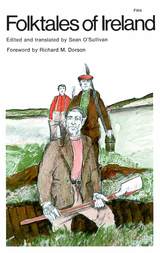
"Without doubt the finest group of Irish tales that has yet been published in English."—The Guardian
"O'Sullivan writes out of an intimacy with his subject and an instinctive grasp of the language of the originals. He tells us that his archives contain more than a million and a half pages of manuscript. If Mr. O'Sullivan translates them, I'll read them."—Seamus Heaney, New Statesman
"The stories have an authentic folktale flavor and will satisfy both the student of folklore and the general reader."—Booklist
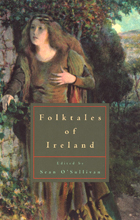
"Without doubt the finest group of Irish tales that has yet been published in English."—The Guardian
"O'Sullivan writes out of an intimacy with his subject and an instinctive grasp of the language of the originals. He tells us that his archives contain more than a million and a half pages of manuscript. If Mr. O'Sullivan translates them, I'll read them."—Seamus Heaney, New Statesman
"The stories have an authentic folktale flavor and will satisfy both the student of folklore and the general reader."—Booklist

This is the first systematic study of patterns of social mobility in Ireland. It covers a recent period—the 1960s—when Ireland was undergoing rapid economic growth and modernization. The author thus was able to test the widely accepted hypothesis that growth weakens class barriers. To his surprise he found that it did not. Social mobility increased somewhat, but among mobile men the better jobs still went to those from advantaged social class origins. Despite economic development and demographic change, the underlying link between social origins and career destinations remained unchanged.
In chapters on education, life cycle, religion, and farming, Michael Hout shows how inequality persists in contemporary Ireland. In the last chapter he reviews evidence from other countries and concludes that governments must take action against class barriers in education and employment practices if inequality is to be reduced. Economic growth creates jobs, he argues, but economic growth alone cannot allocate those jobs fairly.
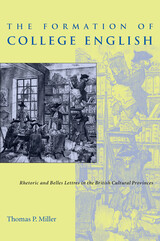
In the middle of the eighteenth century, English literature, composition, and rhetoric were introduced almost simultaneously into colleges throughout the British cultural provinces. Professorships of rhetoric and belles lettres were established just as print was reaching a growing reading public and efforts were being made to standardize educated taste and usage. The provinces saw English studies as a means to upward social mobility through cultural assimilation. In the educational centers of England, however, the introduction of English represented a literacy crisis brought on by provincial institutions that had failed to maintain classical texts and learned languages.
Today, as rhetoric and composition have become reestablished in the humanities in American colleges, English studies are being broadly transformed by cultural studies, community literacies, and political controversies. Once again, English departments that are primarily departments of literature see these basic writing courses as a sign of a literacy crisis that is undermining the classics of literature. The Formation of College English reexamines the civic concerns of rhetoric and the politics that have shaped and continue to shape college English.
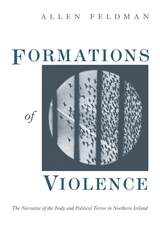
"A sophisticated and persuasive late-modernist political analysis that consistently draws the reader into the narratives of the author and those of the people of violence in Northern Ireland to whom he talked. . . . Simply put, this book is a feast for the intellect"—Thomas M. Wilson, American Anthropologist
"One of the best books to have been written on Northern Ireland. . . . A highly imagination and significant book. Formations of Violence is an important addition to the literature on political violence."—David E. Schmitt, American Political Science Review
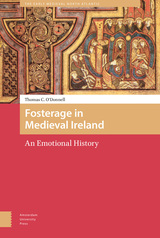
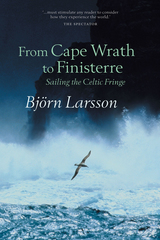
READERS
Browse our collection.
PUBLISHERS
See BiblioVault's publisher services.
STUDENT SERVICES
Files for college accessibility offices.
UChicago Accessibility Resources
home | accessibility | search | about | contact us
BiblioVault ® 2001 - 2024
The University of Chicago Press









